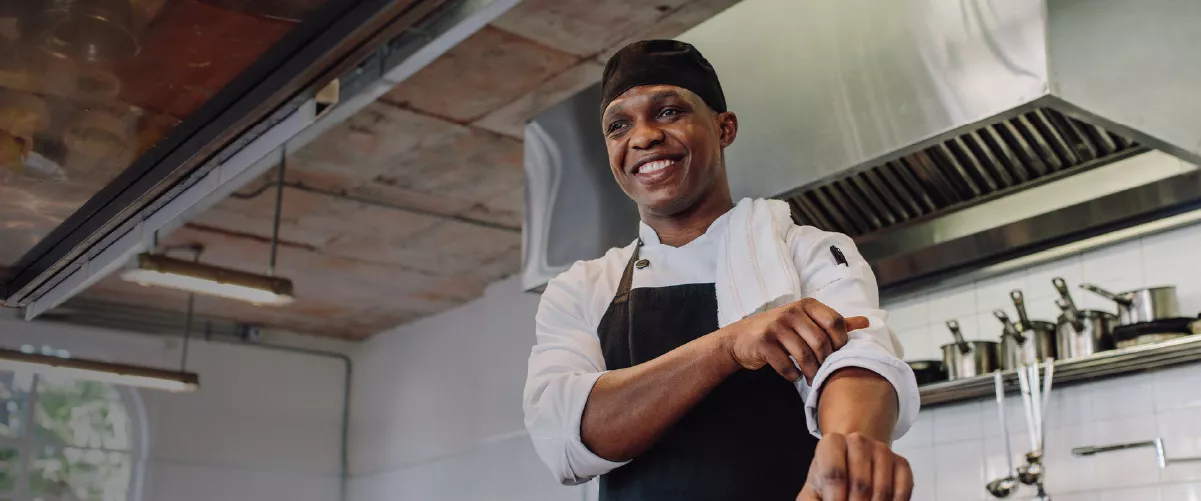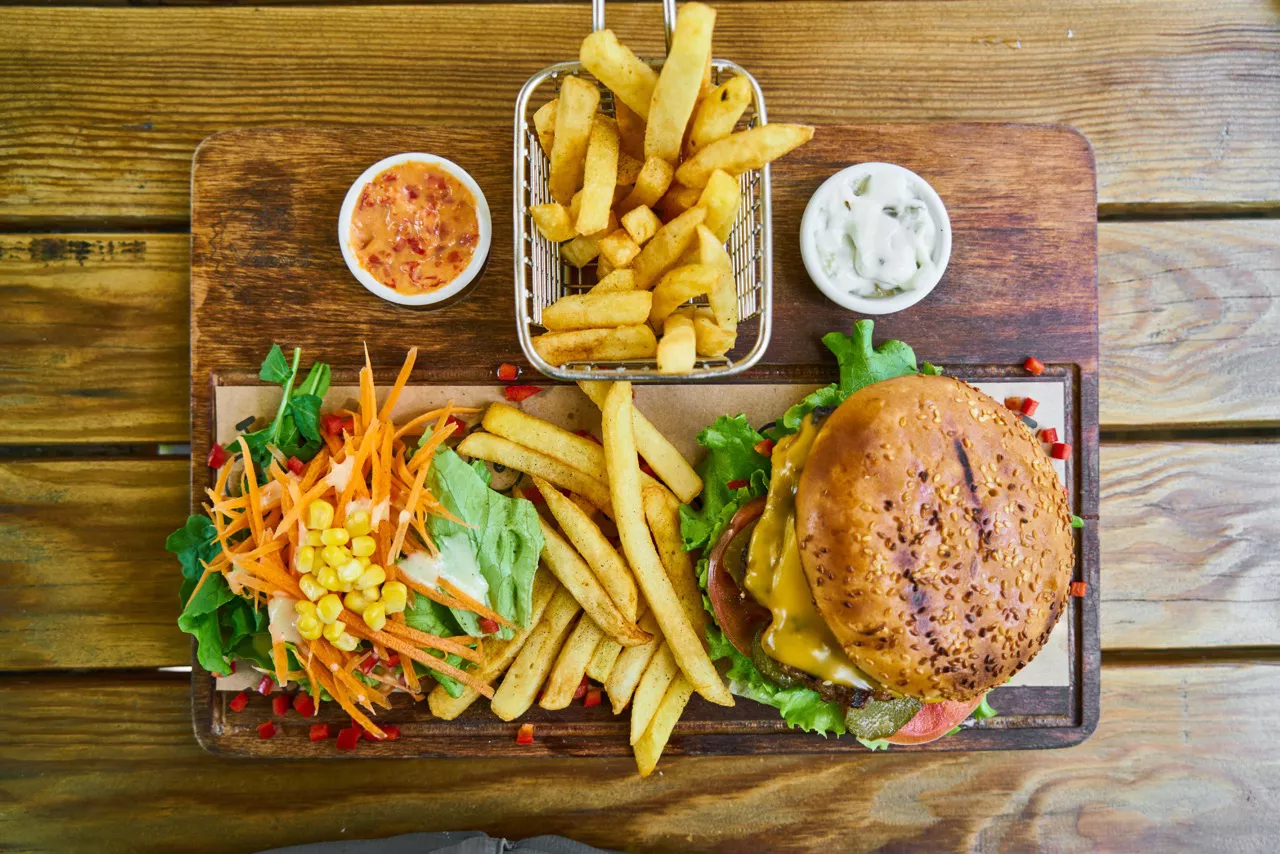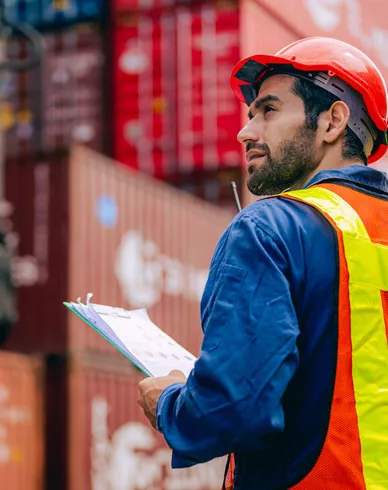Restaurant Technologies
Cooking up an efficient digital ecosystem

At a glance
Restaurant Technologies offers cooking-oil management and back-of-house cleaning solutions to over 36,000 commercial kitchens across the United States. When the company’s digital ecosystem proved to be a hurdle in the way of meeting demand for its oil management offering, the team partnered with Slalom to implement an innovative new system that fosters better experiences for employees and customers.
Impact
In just a few months, the teams successfully migrated processes, projects, and data from the legacy system into a new solution powered by Salesforce Service Cloud, Sales Cloud, Field Service, and MuleSoft data integration.
Key Services
Industry
Materials and chemicals
Key Technologies / Platforms
- Mulesoft
- Salesforce
- Lightning Web
- Field Service
Rising demand
Between sharp objects, high temperatures, and crowded spaces, there are plenty of safety risks in any commercial kitchen—and managing and disposing of large volumes of hot oil isn’t one that’s easy to solve. Fortunately, kitchen services provider Restaurant Technologies offers an all-in-one oil management solution, encompassing the entire process from oil tank installation to oil delivery and recycling.
This unique offering enables Restaurant Technologies to help make its clients’ restaurants safer, more efficient, and more sustainable, all while reducing the risk of injury from oil burns and slips. And because the service is so integral to seamless kitchen operations and the well-being of staff, demand for total oil management was ramping up faster than Restaurant Technologies could keep up with.
“It wasn’t long before we realized that the technology we were using to support the service was the main obstacle in the way of growth,” said Matt Throumoulos, senior director of operations at Restaurant Technologies.
An appetite for integrated technology
Restaurant Technologies relied on a mix of disconnected platforms to support its oil management offering, including a homegrown system for handling product maintenance and installation. But the custom platform couldn’t receive data updates from the company’s enterprise resource planning (ERP) or customer relationship management (CRM) systems, so project managers had to make updates manually—a tedious, error-prone process that made it difficult to keep up with demand.
The homegrown solution was also disconnected from the application that scheduled maintenance and installation work for the field service team, leaving project managers to coordinate on their behalf. And because each department worked in disparate systems to see updates, there was no reliable record of a project’s status. Real-time insights about open fieldwork cases were lost in translation through time-intensive work-arounds, costing the company customer satisfaction and cross-departmental alignment.
Additionally, the distributed data structure prevented Restaurant Technologies from leveraging a comprehensive view of each customer to deliver best-in-class service. If a customer called to troubleshoot a maintenance issue, the customer care team would be missing the information needed to deliver a quick solution, like their oil usage or the type of fryer they cook with. This all stood in the way of cross-selling opportunities that could enrich customer relationships and increase lifetime value.
“Once we identified that our digital ecosystem was holding us back from offering new products and services, we knew it was time for a change,” said Andy Dulka, chief information officer at Restaurant Technologies. “When it came to choosing an implementation partner, Slalom’s expertise in driving digital transformations made them a natural fit.”
The ingredients for success
The Restaurant Technologies team was impressed by Slalom’s technical capabilities and reputation, and confident that the partnership would lead to a holistic solution. Once Salesforce was selected as the best platform for the future of Restaurant Technologies, the Slalom team developed a multifaceted implementation approach, including in-depth discovery, build, testing, and training phases.
In just a few months, the teams successfully migrated the processes, projects, and data from the legacy system into a new solution powered by Salesforce Service Cloud, Sales Cloud, Field Service, and MuleSoft data integration. Technical experts from Slalom also built customizations that connect a third-party call center app to the central platform, creating a unified system where customer data flows seamlessly across teams.
As the system’s components were being tailored to Restaurant Technologies’ needs, Slalom hosted lunch-and-learns, training sessions, office hours, and feature demonstrations to garner buy-in and feedback from future users. These efforts laid the foundation for widespread adoption, ensuring that teams were set up for success ahead of the go-live.
Clear and cohesive operations
Restaurant Technologies’ oil management operation is now supported by a fully integrated solution. As a result, teams are aligned, processes are streamlined, fieldwork is more efficient, and customers receive the tailored service they need to run their kitchens more effectively.
The company’s oil management activities are housed in Service Cloud, which calls on MuleSoft to automatically create the cases that initiate an installation project. And because the team has a new workflow that introduces maintenance plans for recurring work, they no longer have to rely on creating each work order manually.
Additionally, every installation site associated with a customer’s account now lives in a central digital platform—so each department has visibility into the related work orders that feed in through Salesforce Field Service.
“All users can access a real-time view of the same account, case, work order, and service appointment from a single system,” said Tom Richardson, senior delivery principal at Slalom. “A customer care rep can be just as informed about a project’s status as the field technician assigned to the job.”
The customer care team is also equipped with tools that elevate the customer experience. Because the new Salesforce-powered system communicates with the company’s call center app, reps can connect the phone numbers from inquiring callers to existing customer accounts.
“With these efficiencies, we’re able to work together as a cohesive team rather than siloed departments,” said Throumoulos.
Now that Restaurant Technologies’ digital ecosystem can seamlessly exchange data, a 360-degree view of the customer—including all the context and case history needed to address an issue—is readily available. Reps are empowered to deliver personalized service and identify the best-fit solution quicker than ever before.
A fresh future for Restaurant Technologies
As Restaurant Technologies embraces process efficiencies, seamless cross-departmental communication, and new levels of customer satisfaction, the company is seeing the following improvements:
- 800 employees successfully using the system
- 29% decrease in the time it takes to install equipment after a sale is made
- 48% increase in the number of monthly product installations
- 56% increase in the number of technical work orders resolved
- 125% increase in the number of scheduled repairs
After experiencing resounding success with Salesforce, Restaurant Technologies is eager to bring CPQ (configure, price, quote), and Marketing Cloud Account Engagement into the fold of its new oil management ecosystem, doubling down on data-driven decision-making and organizational alignment.
“Our partnership with Slalom and Salesforce has empowered us to level up the experiences of both our employees and our customers,” said Dulka. “We’re proud to offer our clients a convenient, reliable service that helps them create more sustainable operations, fresher food, and safer kitchens.”




